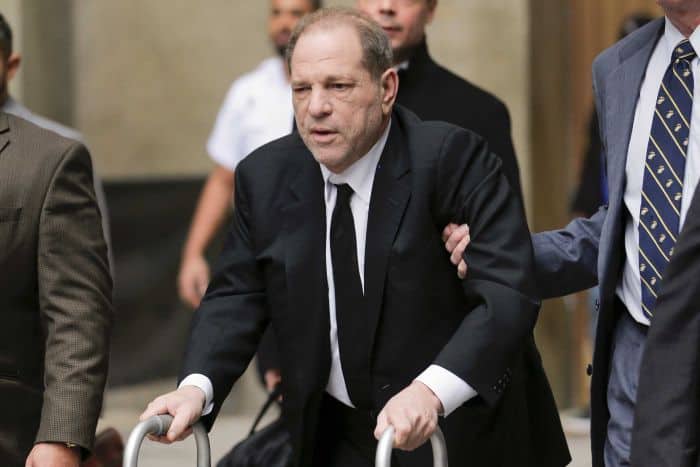
By Dan Murphy
While the debate over bail reform in New York was ongoing, and unresolved, before the COVID-19 pandemic landed here, the debate now continues in the context of the Coronavirus. The new bail reforms, which, effective Jan. 1, eliminated bail for many crimes and also eliminated the discretion that judges had to impose bail on those they believe pose a threat, are now focused on whether prisoners in county and state jails should be released as a precaution to spreading COVID-19.
Several community organizations, including WESPAC, Center for Community Alternatives, Citizen Action NY, FWD.us, Brooklyn Community Bail Fund, Robert F. Kennedy Human Rights, and Color of Change, joined together to issue a statement: “With confirmed cases of the virus reaching both Sing Sing prison and our county jail here in Westchester County, we need to release any person who does not pose a threat to public safety in order to contain any potential viral outbreak, and we must insist more urgently than ever on no rollbacks to the bail reforms that were passed in 2019 that reduce the numbers of people detained pre-trial.
An accompanying fact sheet claims that COVID-19 will:
* Spread “like wildfire” in New York’s jails, putting incarcerated people, staff, and surrounding communities at risk.
Jails are uniquely poor sites for stopping or containing viral outbreaks. Social distancing is virtually impossible in the close-quarters of New York’s jails. Hand sanitizer is contraband and access to soap, toilet paper, and handwashing facilities is highly limited.
People in jail have disproportionate rates of chronic illnesses that make them vulnerable to the Coronavirus. According to the Bureau of Justice Statistics, 40 percent of incarcerated people suffer from chronic health conditions, including 20 percent with asthma (versus 11 percent in the general population).
Health care in New York’s prisons and jails is chronically inadequate even without a pandemic. In the five years from 2013 to 2018, 50 people died in New York State prisons from want of adequate medical care. In 2016, India Cummings died in the Erie County jail in a case ruled “homicide by medical neglect.” In 2017, Nassau County renewed its contract with a for-profit company to provide health care in its jail, despite state findings that inadequate health care by the same company led to the deaths of five people incarcerated in the Nassau County jail in 2015.
* Bail reform rollbacks would exacerbate a public health crisis.
New York State made the responsible decision to pass bail reform last session. As a result, there are nearly 7,000 fewer people being held in county jails on any given day.
The bail law rollbacks proposed by the Senate Democrats and under consideration by the governor will increase the number of people in jails and the length of time people will spend in jail. Rolling back bail reform would mean more people unjustly in jail without a trial, which is not only inhumane, but threatens further spread of Coronavirus.
Many of the people now spared pretrial jailing under New York’s bail reform law would have spent one to three days incarcerated pretrial under the prior system. These “short-stays” provide no safety benefit, while destabilizing families and risking greater spread of COVID-19 in both jails and the surrounding community as thousands more people will cycle in and out of unsanitary, unsafe conditions and back into the community.
* It is not responsible to advance bail reform rollbacks in an “accelerated” budget process.
Policy changes should be data-based and deserve a democratic process and thoughtful policy setting. Changes to the bail law will impact tens of thousands of people directly and will have dramatic and poorly understood impacts on the health of all New Yorkers. Pushing through bail reform rollbacks on an accelerated timeline, especially when they have been in effect for less than three months, is not responsible policy-making.
In light of the Coronavirus and the expedited budget process, there would simply be no way to debate these issues responsibly and democratically, and during a public health crisis, it would be devastating to subject more New Yorkers to the COVID-19 health risks of pretrial incarceration.
Bail reform is working. Each day in February there were 6,800 fewer people incarcerated pretrial in New York’s jails than in February 2019. This is 6,800 people who are not exposed to heightened risk of contracting COVID-19, people who are not subject to the trauma of pretrial jailing or the violation of their constitutional rights.
Nationally, health care advocates and others are calling for bail reform and decarceration efforts like we have achieved in New York.
* New Yorkers need investments in health care, housing and other services.
* Gov. Andrew Cuomo needs to stop trying to put more people in jail by rolling back bail reform and focus on the real problem: A lack of meaningful access to health care, programs and services.
Most law enforcement agencies had already begun to arrest fewer persons before COVID-19, and as a result of bail reform, began issuing tickets and appearance summonses.
“Mother Jones” contributor Madison Pauley writes: “In Westchester County, New York, one of the worst Coronavirus hotspots, New Rochelle Police Capt. Cosmo Costa said his department has rolled back some services, such as dispatching officers to respond to low-level 911 calls for emergency medical services. Asked if New Rochelle police would reduce arrests for low-level crimes, Costa pointed to New York’s newly enacted bail reform law. The law requires judges to release people accused of misdemeanors and non-violent felonies – which make up about 90 percent of arrests – at arraignment, or impose non-monetary conditions on their release, like electronic monitoring. Since Jan. 1, Costa said, most people arrested by his department’s officers are now given a ticket to appear in court rather than being sent to jail.”
Crime statistics in NYS show that there are 6,800 fewer inmates in state jails in February of this year compared to February 2019.
Other law enforcement officials and criminal justice experts say they believe the simple fact of less people on the streets as a result of COVID-19 and the closures results in fewer crimes. “I think these serious crime numbers are starting to decline considerably with fewer people on the streets, fewer commuters going to work, more people working remotely, school closures, nearly empty transit systems,” said Christopher Herrmann, a former NYPD crime analyst and professor at the John Jay College of Criminal Justice.
New York City Police Commissioner Dermot Shea added: “We’ve seen a downturn. As you see crowds disappearing on streets and other areas, that has translated to a decrease in crime.”





